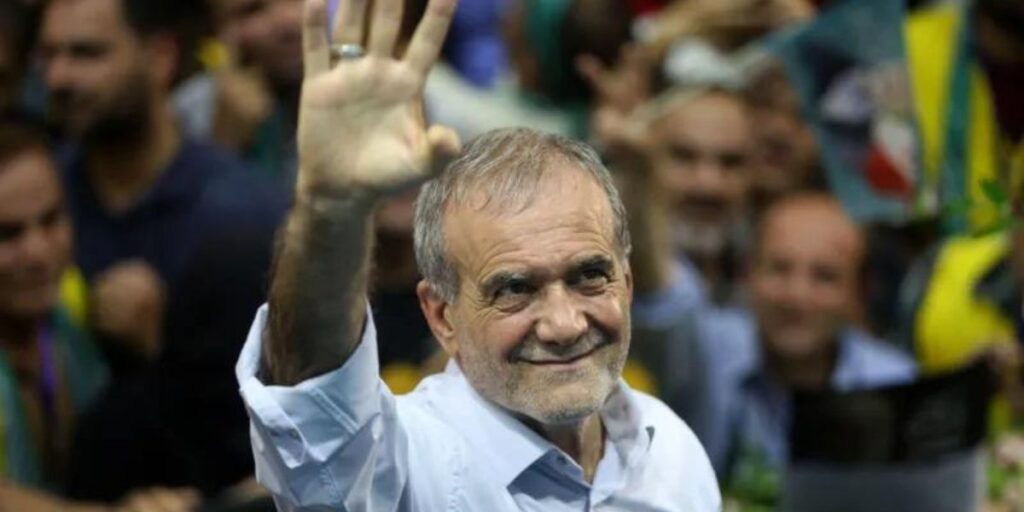- Iran’s tightly-controlled presidential election features reformist Massoud Pezeshkian.
- Conservative candidates face off against Pezeshkian’s promises of change.
- Voter turnout and disillusionment crucial factors in the election’s outcome.
Iran’s presidential election has taken a dramatic turn with the entry of reformist candidate Massoud Pezeshkian, challenging the dominance of conservative contenders amid widespread voter skepticism and calls for change. The election, tightly controlled by clerical authorities who vet candidates, has sparked new interest and debate across the nation.
Pezeshkian, a former heart surgeon and health minister, has emerged as a wildcard in the race, openly criticizing Iran’s morality police and promising to ease strict dress codes for women. He has garnered public support from former reformist presidents and key political figures, rallying crowds in campaign rallies leading up to polling day.
Opposing Pezeshkian are conservative candidates like Mohammad Baqer Qalibaf, a former Revolutionary Guards commander, and Saeed Jalili, a hardline former nuclear negotiator. These candidates advocate for Iran’s independence and resilience amid international sanctions, opposing engagement with the West.
The election’s turnout figures are expected to be a critical test of the Islamic Republic’s legitimacy, following record-low participation in recent parliamentary and presidential elections. Many Iranians, particularly the youth and middle class, express deep disillusionment with the political process under clerical rule, exacerbated by economic hardships and political repression.
Despite hopes pinned on reformists in the past, skepticism remains high among voters who view elections as manipulated by the regime. Critics argue that Pezeshkian’s candidacy may be a strategic move by the clerical establishment to boost voter turnout without substantive change. While some see him as a symbol of potential reform, others view him as constrained by his loyalty to Iran’s Supreme Leader.
As Iran prepares for a pivotal election amidst internal dissent and external pressures, the outcome remains uncertain, with the potential for Pezeshkian’s candidacy to reshape the country’s political landscape, albeit cautiously.
Wildcard Candidate Sparks Controversy in Iran’s Presidential Election

